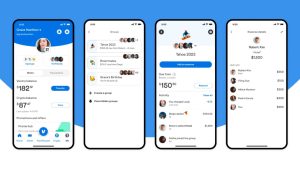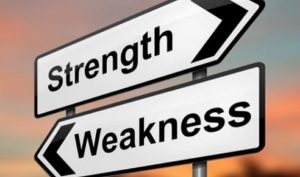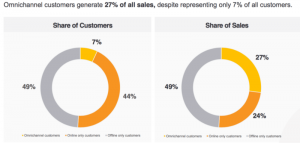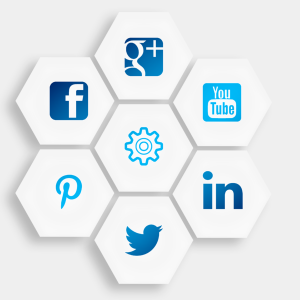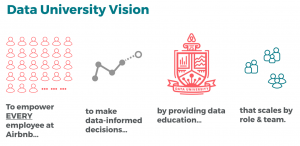Here’s what individual marketers need to be doing to increase their value in the age of AI. Also, a few things to keep us all up at night.
As CEO of The Marketing AI Institute, Paul Roetzer is about as plugged into businesses’ use of artificial intelligence as you can get. While there’s a lot of long-term analysis/navel gazing going on about AI, we wanted to get his take on what to expect in the coming year. He also discussed some worrying blindspots when it comes to how AI will impact business and society.
Q: We know where we’re at in the AI hype cycle, but where are we in terms of its use and development in marketing?
A: We’re still in the experimentation phase. For the most part in marketing, there’s starting to be some case studies about efficiency gains from writing teams or impact on SEO, things like that. But our data, from our own research, shows that we’re largely still experimenting and trying to find the pilot use cases. There are a lot of companies in heavily regulated industries where they’re not even allowed to really be using these things.
This will probably be the year where you start to really see the scale of these technologies within companies and then the impact it’ll have on marketing teams and tech stacks and strategies. I’m talking to a lot of enterprise marketers who are building their strategies this year the same way they built them last year. And so I think we’re just we’re really in the very, very early phases of adoption.
Q: What is needed for AI to become a useful tool for marketers and marketing organizations?
A: Literacy. We have to develop a deeper understanding, not within a couple of people within the department, but like the true literacy across everybody about what it is, what it’s capable of, and then, therefore, being able to identify what use cases.
It’s going to take some time for marketers to realize everything they’re capable of and what that actually means to their staffing strategies and their technology.
Q: Everyone talks about how you can use natural language when working with AI now, but you still need to learn how to use it, right?
A: Absolutely. Companies need to be working on formalizing training programs, but it might take a little while. So it will be on the individual to figure out how to get the skills to advance themselves. That comes from finding trusted sources to use. Like any of us could go on X/Twitter right now and see threads of ‘10 things to do with ChatGPT Plus’ or whatever. And that’s not the place you want to go. You want to find reliable places.
The key is for people to find three to five trusted sources that are going to help them get through the noise and figure out what really matters. They could be blogs, videos, podcasts or whatever. And then I think they need to learn how to apply what they learn to their specific career path, like social media or SEO or analytics.
It’s going to be very hard for people to become these really, really informed generalists on AI. I think that we’re going to need those people, but most people need to specialize, It’s going to be like, no, I do the podcast or I do the SEO or I do the email. Go deep on how to do that more creatively, more efficiently, how to increase your own production And focus on the tools that do that.
For a lot of people, the real key for this year is not to get overwhelmed by all the information and the constant advancements that are being made in AI. Zero in on the thing you do and find ways to use it so that you become more valuable as a professional.
And that’s the thing that’s more tangible, more doable than trying to think you’re going to get the fire hose and just figure all this stuff out and become this AI expert overnight is not going to happen.
Q: What does it mean for the tech?
A: AI is going to create a lot of redundancies in technology. So your tech stack, where you have all these point solutions to do specific things, there’s a very good chance that at some point in 2024, AI will make a lot of software you currently use obsolete. It’s going to create a problem for the industry. Martech companies are going to have some problems keeping up and remaining relevant.
Q: That seems like something that will have a lot of ripple effects.
A: In the United States, there are roughly 136,000,000 full-time jobs. Estimates vary, but about 100,000,000 of them are knowledge workers, doctors, lawyers, accountants, marketers, writers, engineers, architects. My general belief is within two years, at least 80% of what those people do will be AI-assisted to some degree.
AI is going to be infused into everyone’s lives. How disruptive it is to the workforce is the $ 1,000,000,000,000 question. I believe that it’s going to be painful. I think that there’re going to be a significant number of jobs — in the millions —- that will be lost in the next two years.
Most economists and even most AI people like to think, “Hey, we’ve had technological transformation before. We have had general-purpose technologies that have come into the world, and we adapt. We’re adaptable. We figure things out. We create new career paths.”
With AI, though, there’s no study to look back on. No historical context for a general-purpose technology that diffuses so widely so fast. With other new technologies, it’s always taken decades.
With AI it will take only a few years. Consider that 2024 is the year of early-stage AI adoption. That means this year we’re going to figure out how to use it. Writers are going to start using it. SEO people are going to use it. Email marketers are going to use it. Accountants, lawyers, everybody’s going to start kind of figuring it out.
By 2025, there will be enough case studies to say, “Oh my god. You can achieve a 30% increase in efficiency with writers. You can have an 80% efficiency with lawyers and accountants.” People will see the data, and there will be pressure to turn that efficiency into dollars by eliminating jobs. It’s what capitalism does. So my feeling is by 2025, we will start to see the ramifications of this.
Q: So, this isn’t a situation like when cars killed the buggy industry, people could go from making one to making the other?
A: Now new jobs will be created, and new roles will be invented. I think there’ll be a new dawn of entrepreneurship where anyone can start a business. There will be positives. I don’t think in the near term, it’s going to happen fast enough to offset the negative.
So I think like 10 years from now, I could totally see that. We’ve created all these new industries, all these new technologies. Jobs are going to be amazing, and we’re going to have, maybe there’ll be universal basic income by them. I have no idea.
But I think in the next two to three years… Well, I have yet to meet a company that is prepared for what’s about to happen. No change management plans, no real AI roadmaps that understand this stuff and project out the impact on their teams 12 months from now. I haven’t seen it and I’ve talked to some of the biggest companies in the world. So what worries me is how unprepared everyone is if AI does achieve the kinds of efficiencies and productivity that it is expected to.
I don’t think anybody’s ready for that. I have talked to one of the leading economists in the world and I don’t feel like they actually had an idea what was happening. The grand question in every career path will be, do we need as many humans when the AI can do 20% or 30% of the work?
The post Paul Roetzer: Looking forward with AI appeared first on MarTech.
MarTech(6)

